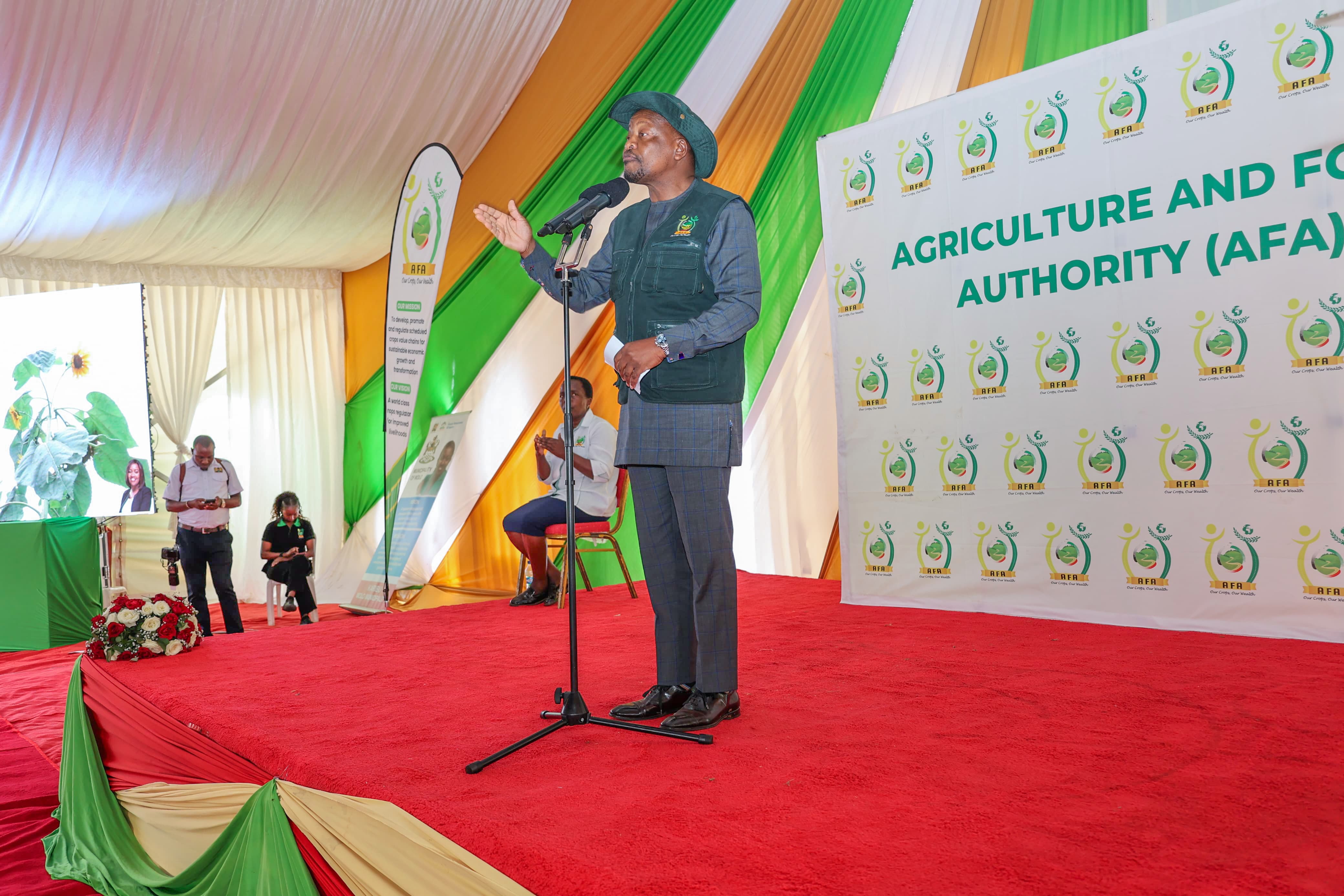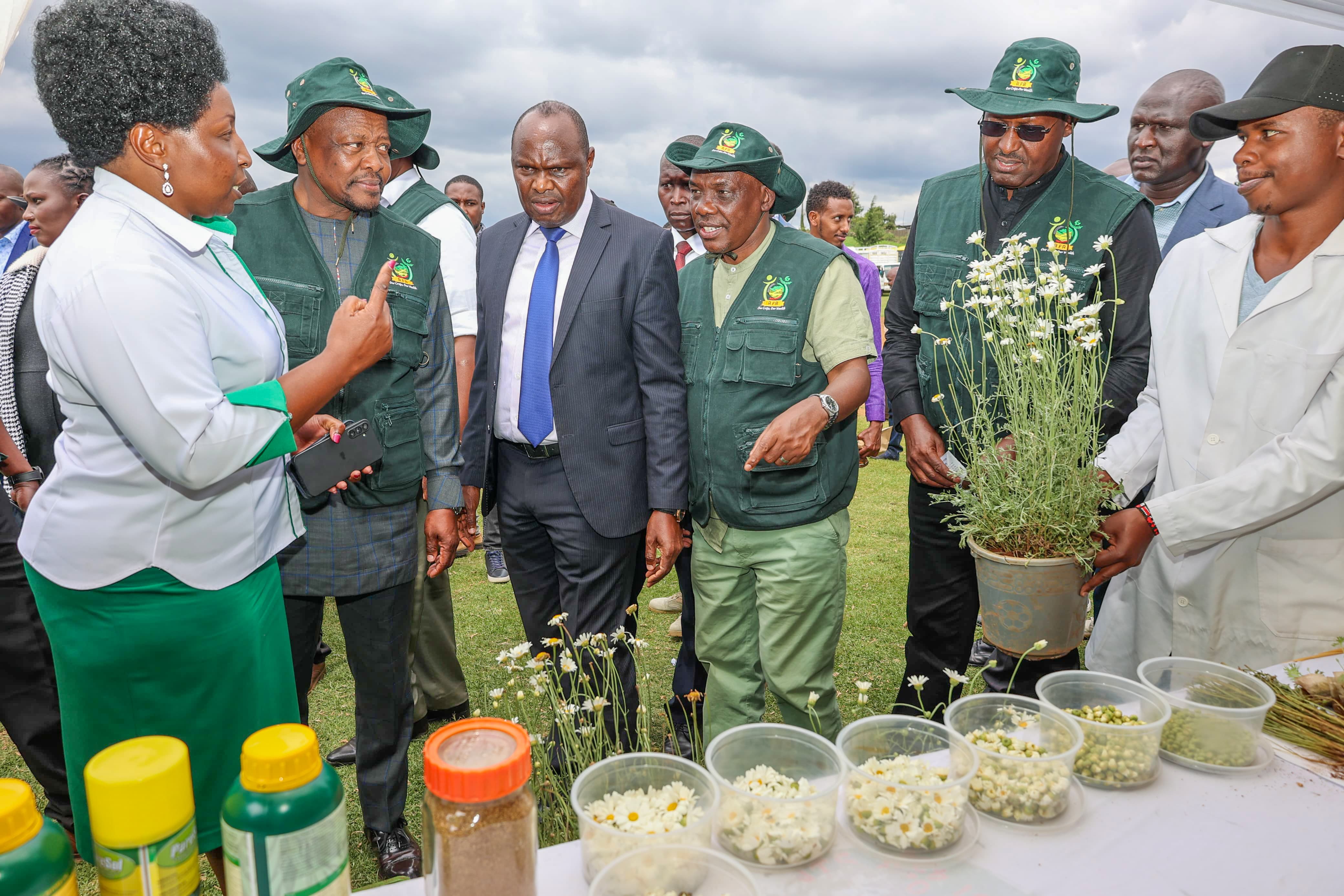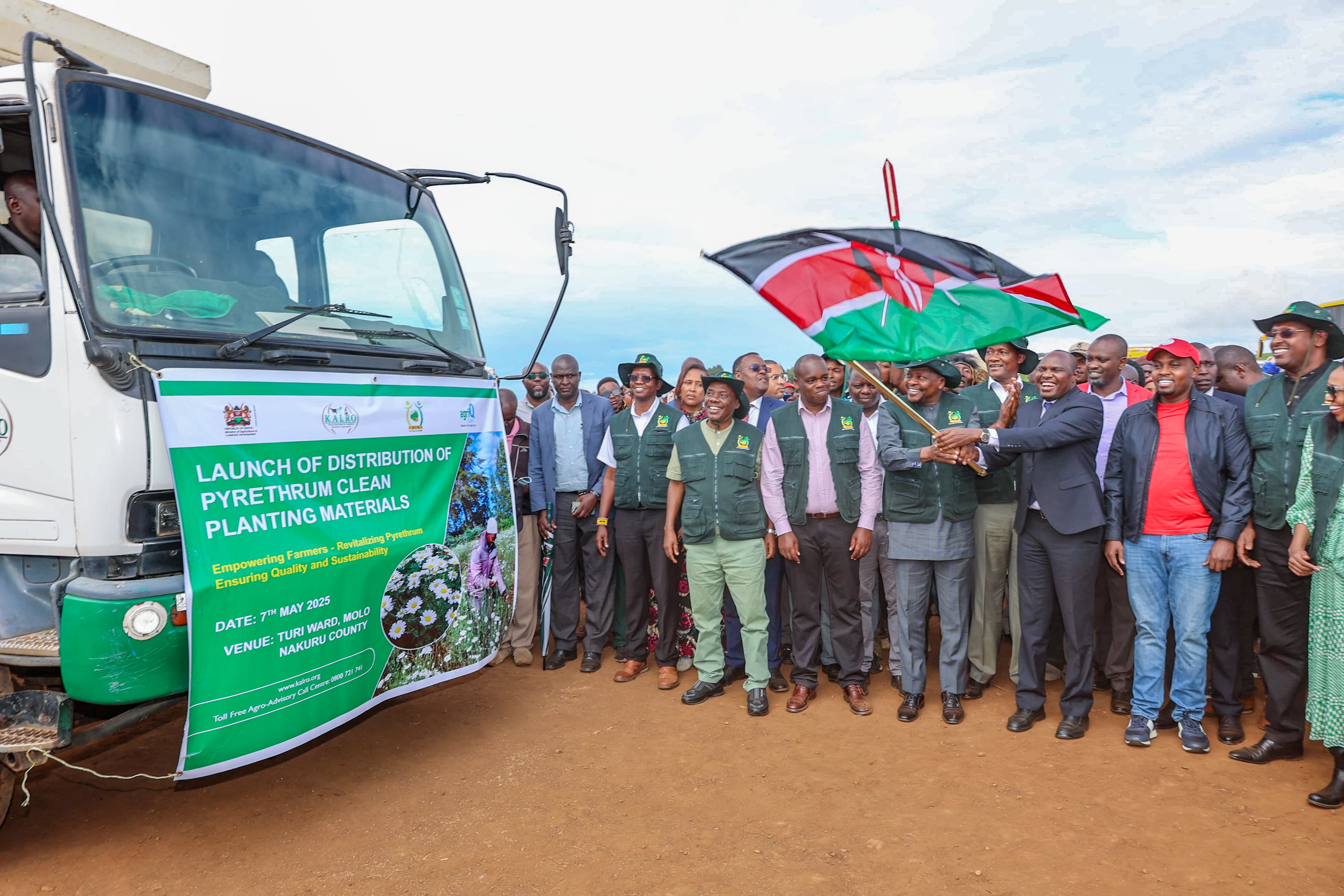
Agriculture and Livestock Development Cabinet Secretary,
Senator Mutahi Kagwe, has announced that the government will ban more than 50
pesticide brands, particularly those prohibited in their countries of origin.
Speaking in Molo, Nakuru County, Kagwe said he had received
a brief on the products from the Pest Control Products Board (PCPB), which
necessitated the plan to impose the ban.
“The Pest Products Control Board have brought to me a list
of products, chemical products, that we have been importing from other
countries for use to control our pests. They have told me about 50 products
that we are going to stop their importation. Those products are now going to be
made with the pesticides here in Kenya,” he said.
Kagwe made the remarks during the official launch of the
distribution of one million clean pyrethrum planting materials.
The event was attended by key leaders, including the Head of
Public Service Felix Koskei, Nakuru Governor Susan Kihika, and Nyandarua
Governor, Kiarie Badilisha.
He emphasised the government's commitment to promoting safer, locally produced alternatives.

He called for collaboration from both the government,
private sector, and the county governments to boost pyrethrum farming in the
country.
“We have agreed this morning with our people in pyrethrum
that we are going to call a meeting of all processors in Nairobi at the
Ministry so that we can strengthen pyrethrum, both the government as well as private
sector,” he said.
As part of this effort, he unveiled an ambitious plan to expand pyrethrum farming from the current 10,000 acres to over 70,000 acres nationwide.

“Boosting pyrethrum farming will not only enhance local
pesticide production but also create thousands of jobs for Kenyans," he
said.
He assured farmers that they have markets locally that could
give them good returns, saying exportation would no longer be their best option
once the sector is streamlined.
“I want to tell you that your market is here in Kenya, not
abroad. We used to plant 70,000 acres of pyrethrum, but we are now planting
10,000 acres. We want to go up to where we were so that we lead globally,” he
said.












